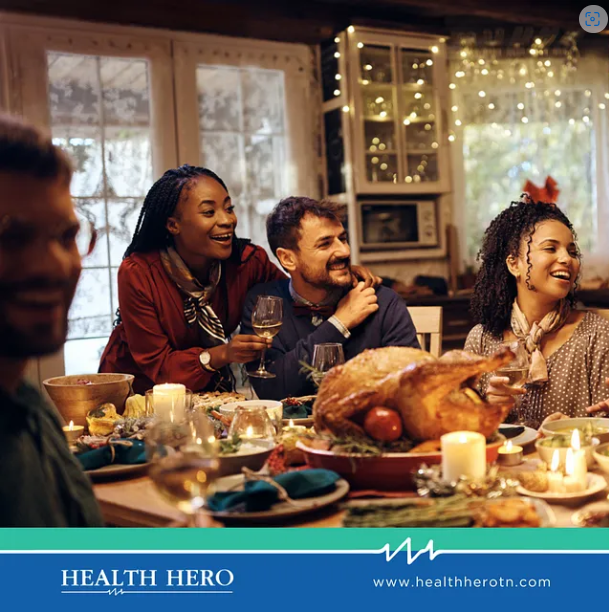Parades, football, and full bellies — families are eagerly counting down the days until Thanksgiving. But if you’re traveling, you might experience more than just food comas this holiday. This season often brings illnesses due to increased respiratory illnesses, including the flu, COVID-19, and RSV (respiratory syncytial virus). These viruses are often spread more easily in crowded indoor spaces, making it especially important for families to protect themselves and their loved ones. One of the best ways to do that is by getting vaccinated.
Vaccination Timing
Time is important, whether cooking a turkey or scheduling vaccinations. If you missed the early fall push for flu and COVID-19 vaccines, don’t worry; it’s not too late. Health experts recommend getting vaccinated ahead of the holidays, as respiratory viruses tend to spread more rapidly with increased travel and indoor gatherings. The CDC emphasizes that the two-week period leading up to Thanksgiving is ideal for getting your flu and COVID-19 shots. This is because the body needs time to build immunity, which takes about two weeks.
COVID-19 cases tend to rise in the winter, starting around Thanksgiving and peaking in January. This winter surge often coincides with the start of flu season, which typically begins in November or December and peaks in January or February. As both viruses spread simultaneously, it can become confusing because they share similar symptoms. If not treated, this could result in severe illness, especially for those who are unvaccinated.
Why Vaccination Matters
Both COVID-19 and the flu can be serious, particularly for young children and pregnant women. The CDC urges everyone aged six months and older to get an updated COVID-19 vaccine and a flu shot. These vaccines can offer protection against severe illness, hospitalization, and death. While they may not prevent every illness, they have been proven to reduce the severity of infections.
According to the CDC, only 45% of adults received a flu vaccination last year, and just 23% received a COVID-19 shot. Given that COVID-19 still claimed more lives than the flu last year, it’s clear that this vaccination should be part of your routine immunization schedule.
The Importance of RSV Vaccination
It’s not only the flu and COVID-19 that impact the holidays. Another virus to be aware of is RSV, which can be particularly dangerous for young children. RSV is known for causing severe respiratory illnesses and hospitalizations each winter. The CDC recommends an RSV vaccine for those 75 and older and those aged 60–74 at increased risk. Pregnant women are also encouraged to get vaccinated to protect their newborns during the fall and winter months. Data shows that only 24% of seniors received the RSV vaccine last year, highlighting the need for more people to seek this protective measure.
Vaccine Options:
Flu Vaccines: This year’s flu vaccine targets two Type A strains and one Type B strain. For people 65 and older, high-dose shots and special immune-boosted options are available.
COVID-19 Vaccines: The updated COVID-19 shots offer enhanced protection as this strain continues to evolve and are available to everyone aged six months and older.
RSV Vaccines: The RSV vaccine is recommended for older adults, pregnant women, and those at increased risk. It’s a one-time shot that protects for the season.
Put Your Family First This Holiday Season
Thanksgiving is a special time that marks the beginning of the holiday season and the start of cooler weather. As you prepare the turkey, take a moment to prepare your body for the illnesses that circulate during winter. Getting vaccinated is quick and easy, and it only takes a little time to help reduce the risk of severe illness and hospitalizations this season. This holiday, focus on making memories, not dealing with illness.
Sources:
CDC: Immunizations for Respiratory Viruses Prevention
John Hopkins Medical: COVID-19 Vaccine: What You Need to Know


